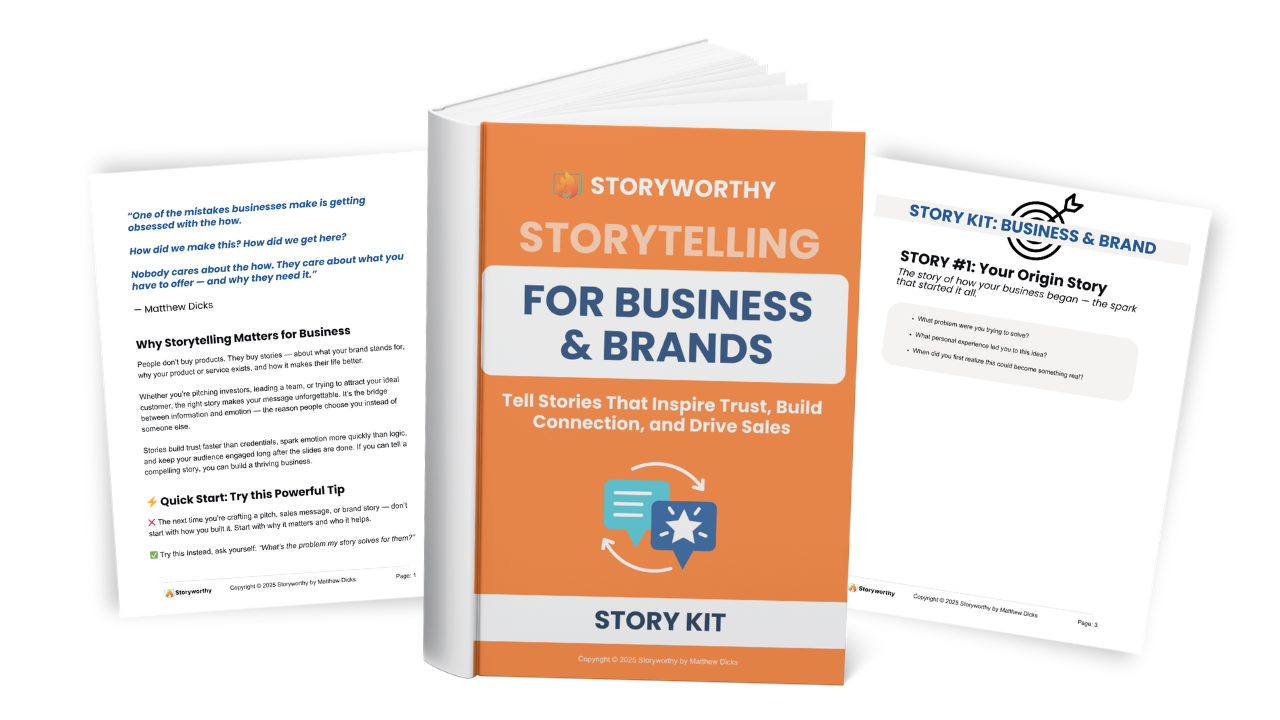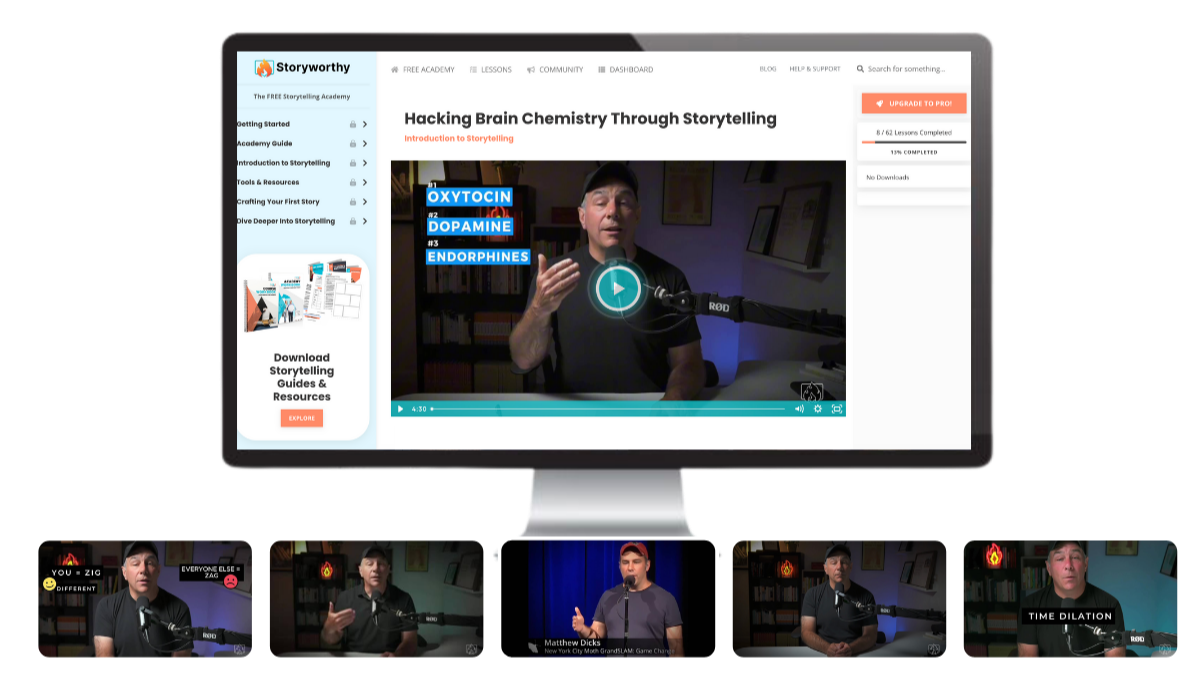Meeting the needs of the audience "HINGES" on Storytelling

A friend of mine was recently debating about how she should respond to a man on Hinge - a dating app - who had just liked her photo.
- Casual but interested?
- Flirty and fun?
- Short and sweet?
- Cautious and calculating?
A bunch of our friends were chiming in, offering ideas, pitching lines, and making suggestions.
None were very good.
Finally someone turned to me. “You’re the writer, Matt. What would you say?”
My response:
“In situations like this, you simply ask yourself this: What does he want you to say?”
The room went quiet. Finally, someone said, “That’s deep. And good.”
“Where’d you get that idea?” someone else asked.
“Storytelling,” I said.
The best storytellers in the world understand that stories are crafted based upon what the audience wants to hear. When your primary concern becomes meeting the needs of the audience rather than your own personal needs, your stories will become entertaining, engaging, and unforgettable.
This means that details you care about deeply that don’t help the story must be left behind.
This means that data that took months to gather but does not propel the story forward must be left on the cutting room floor.
This means that when you can’t remember a person’s name in your story, you must move on, because no one wants to listen to you try to remember the name of a person they have never and will never meet. They don’t care if it was Jane or Janet.
They care about the story.
Audiences want stakes, suspense, surprise, and humor. They want to feel like they can relate to your story in some way. That want to feel like they are rushing towards a satisfying ending just over the next rise. They want to be consumed with wonder and feel caught up in formward momentum.
Make these your priorities, and your audience will be thrilled.
In the case of the man on Hinge, he probably wants to hear that my friend is excited about his liking of her photo and willing to chat about future possibilities.
Excitement, interest, and openness.
That’s what he probably wants to hear.
How you actually say it doesn’t matter very much.







